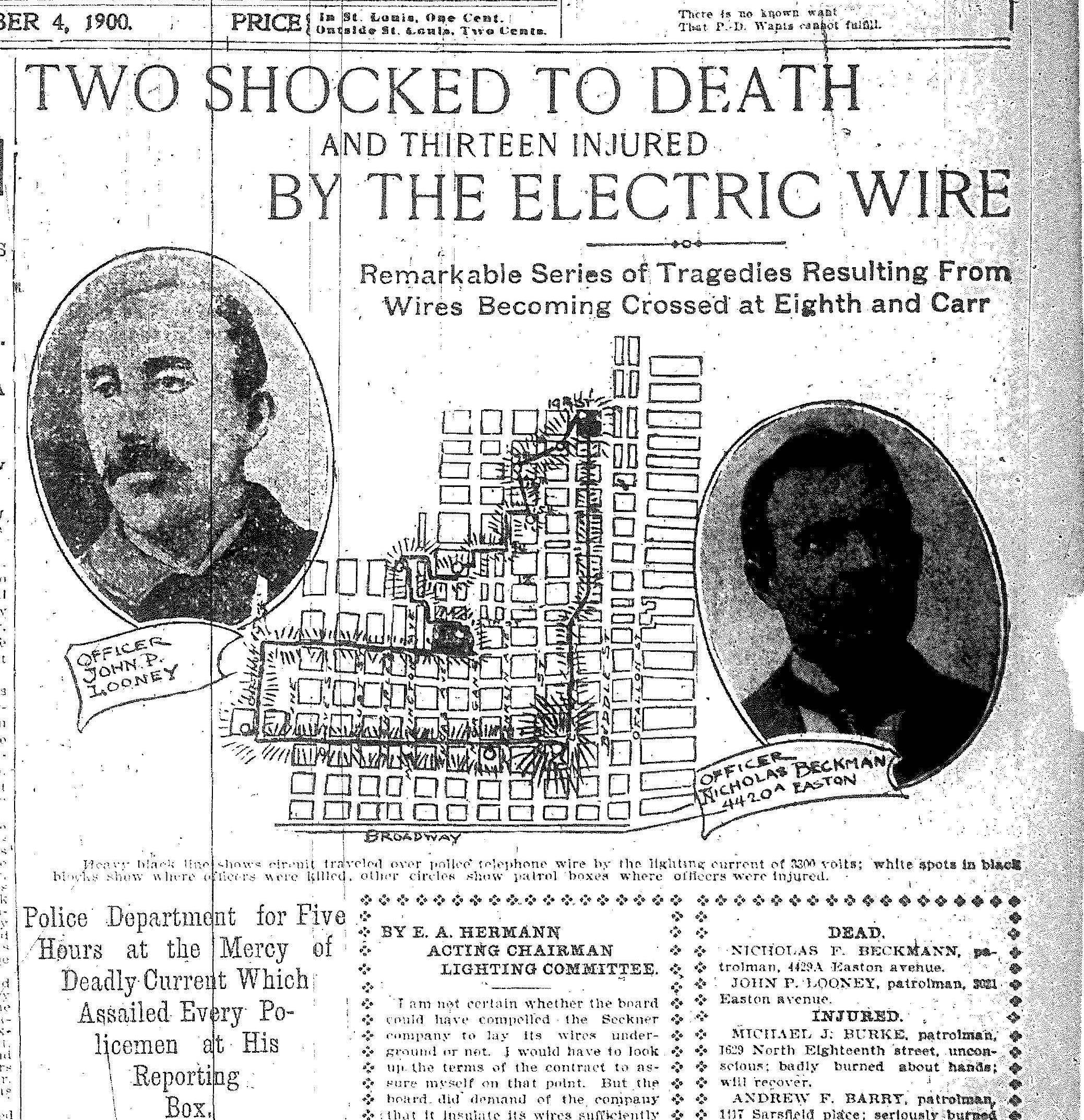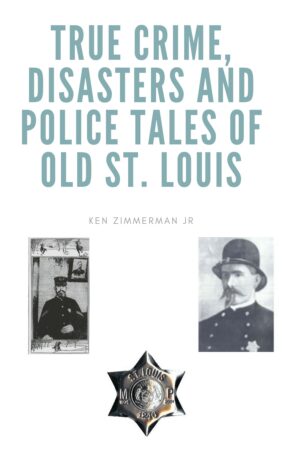Deadliest Night for St. Louis Police
The deadliest incident in St. Louis Police history was not a shootout, natural disaster, or act of terrorism. The deadliest incident in St. Louis Police history occurred on the night of Monday, September 3, 1900. Electricity was the assailant as a power line with 3300 volts of electricity fell onto the telephone lines, at Eight Street and Carr Avenue. The telephone lines connected all the policemen’s call boxes in the Downtown area.
Seventy police officers patrolling the Downtown District were potential victims as they made their way to the call boxes for their 7:00 p.m. check-ins. By the end of the night, two police officers lay dead, and electricity seriously burned thirteen other officers. The current also injured officers by throwing the officers from the call boxes or the headquarters call center.
Before the implementation of the two-way radio, police officer called in on the call box every hour, so the station knew they were okay. The call box was also the primary way to call for a transport after arresting someone. As the police officers began to make their way to the call boxes, the electric current knocked an operator against the wall in the headquarters call center.
St. Louis Police command personnel sent out messengers to warn the officers about the potential threat, but too many officers did not get the warning in time. A lineman, who responded to police headquarters, was also badly shocked, when he tried to address the problem.
The thirteen injured officers suffered burns to their hands, or the current knocked them unconscious. The current threw a handful of officers from the call box leading to joint injuries. The most common burn injuries were to the hands from inserting keys into the call box or cranking the call box handle.
Patrol Officer John F. Killoren inserted his key into the call box at Fifteenth Street and Franklin Avenue and the electric current through Killoren into the street. Killoren staggered to his feet and tried to open the call box again before bystanders could stop him. The current knocked Killoren back into the street again with serious burns to his hands.
In addition to the injured officers, who citizens transported to the hospital, two officers lost their lives that night. The current killed young officer, Nicholas F. Beckmann, and veteran officer, John P. Looney.
Beckmann was a twenty-six-year-old police officer and veteran of the Spanish-American War. Beckman fought at the battle of San Juan Hill, which made Theodore Roosevelt’s Rough Riders famous.
Beckman used the call box on Eighteenth Street between Washington and Carr Avenue. As Beckmann opened the call box, he screamed and fell backward. Bystanders took him to the nearby Protestant Hospital, where he never regained consciousness. The department had to break the news to his widowed mother, who lived with Beckmann.
James Looney was a 41-year-old husband and father, who had been on the force since 1893. The electrical current shocked Looney as he tried to open the call box at Twelfth Street and Morgan Avenue. Citizens carried Looney to the dispensary, but he never regained consciousness. Looney died 15 minutes after the first shock.
City Lighting officials determined the source of the shock to be the power line from the Seckner Contracting Company. According to city officials, the Seckner Company’s was supposed to bury their wires, but the company received a waiver from the Board of Public Improvements. The officials cut down the responsible lines and told Seckner to bury the lines after repairing them.
In 2006, the St. Louis Police Department recognized that Michael P. Burke, who was one of the thirteen men shocked that night, died from the shock 15 months later, December 13, 1901. It was one of the rare occasions that three St. Louis officers would lose their lives in the same incident. The department shootouts get more coverage but the deadliest night in St. Louis Police history was September 3, 1900, when electricity attacked an unsuspecting force doing their duty.
Sources: St. Louis Post-Dispatch, September 4, 1900, p. 1
You can leave a comment or ask a question about this or any post on my Facebook page.
Pin It



